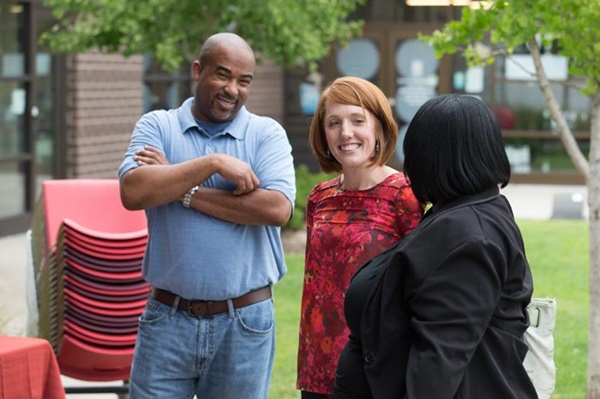United Methodists inherited a church-planting ethic from founder John Wesley. From the early days of his ministry, he took the gospel to people likely to be uncomfortable – or even unwelcome – in existing congregations throughout England. At the same time, Wesley urged those joining the Methodist movement to become part of bands and classes – small groups where members nurtured and held one another accountable for their discipleship.
Whether it is to carry out the Great Commission found in the last verses of Matthew's Gospel or to carry on their Wesleyan heritage, starting new congregations remains important work for United Methodists. In fact, "New Places for New People" was one of the denomination's Four Areas of Focus adopted by General Conference in 2008 and reaffirmed in 2012.
Leading the work of developing new congregations and revitalizing existing ones in the United States is the New Church Starts area of Discipleship Ministries. Mission Initiatives, a program of the General Board of Global Ministries, works in countries where United Methodism is relatively unknown.
 |
| Jurirat and Sompap are married in 2010 in the first wedding at the Bowin United Methodist Church near Bangkok, Thailand. |
A team drawn from United Methodist general agencies, annual conferences and local congregations lead the Path 1 initiative – a part of New Church Starts. Its mission is to train and equip new church planters to start new congregations. The immediate objective is to train and equip 1,000 church planters who will start 650 churches within four years, forming 9 million new disciples of Christ within 30 years.
"One of the most effective ways we have for reaching new people is starting new churches," said the Rev. Candace Lewis, associate general secretary for New Church Starts/Path 1 at Discipleship Ministries.
New Church Starts collaborates with annual conferences through training, consulting, resourcing and coaching. A New Church Starts staff member, deployed to each jurisdiction in the United States, works with conference developers and on the district level with church planters.
Equipping the church planters is crucial to their success, emphasized the Rev. Douglas W. Ruffle, associate executive director of New Church Starts. Training people to become church planters is a major part of the strategy. These (often) young, seminary-trained church planters will be "residents" on the staff of an existing church for a few years, learning to "do church," with an emphasis on making disciples.
While the New Church Starts division of Discipleship Ministries is somewhat new, for three decades, Mission Initiatives of the General Board of Global Ministries have introduced United Methodism in places around the world where few people have heard of it. Through evangelism, church development and social service, the Christian faith spreads through local and regional mission.
Over the past three decades, Global Ministries has engaged in new or renewed mission initiatives in 14 countries: Central African Republic, Cambodia, Cameroon, Honduras, Kazakhstan, Kyrgyzstan, Laos, Mongolia, Senegal, Tajikistan, Thailand, Turkmenistan, Uzbekistan and Vietnam.
Some initiatives have matured full participants in the United Methodist connection. Annual conferences have been established in Russia and other parts of Eurasia.
Through the Mission Initiatives, 574 new faith communities planted from 2009-12 exceeded the goal of 400. The 2013-16 goal is 600 with 215 started by Dec. 31, 2014. The movements are taking increasing responsibility for their leadership and governance.
Polly House, freelance writer and editor based in Nashville, Tennessee.
The World Service Fund provides basic financial support to program-related general agencies, which are especially important to the common vision, mission, and ministry of The United Methodist Church. Through World Service funding, agencies support annual conferences and local congregations in living out God’s mission for the worldwide Church. General agencies also provide essential services and ministries beyond the scope of individual local congregations and annual conferences through services and ministries that are highly focused, flexible, and capable of rapid response.
A portion of the information in this article was complied from the Global Ministries website, umcmission.org.
This article was first published in the January/February 2016 issue of the Interpreter magazine.





